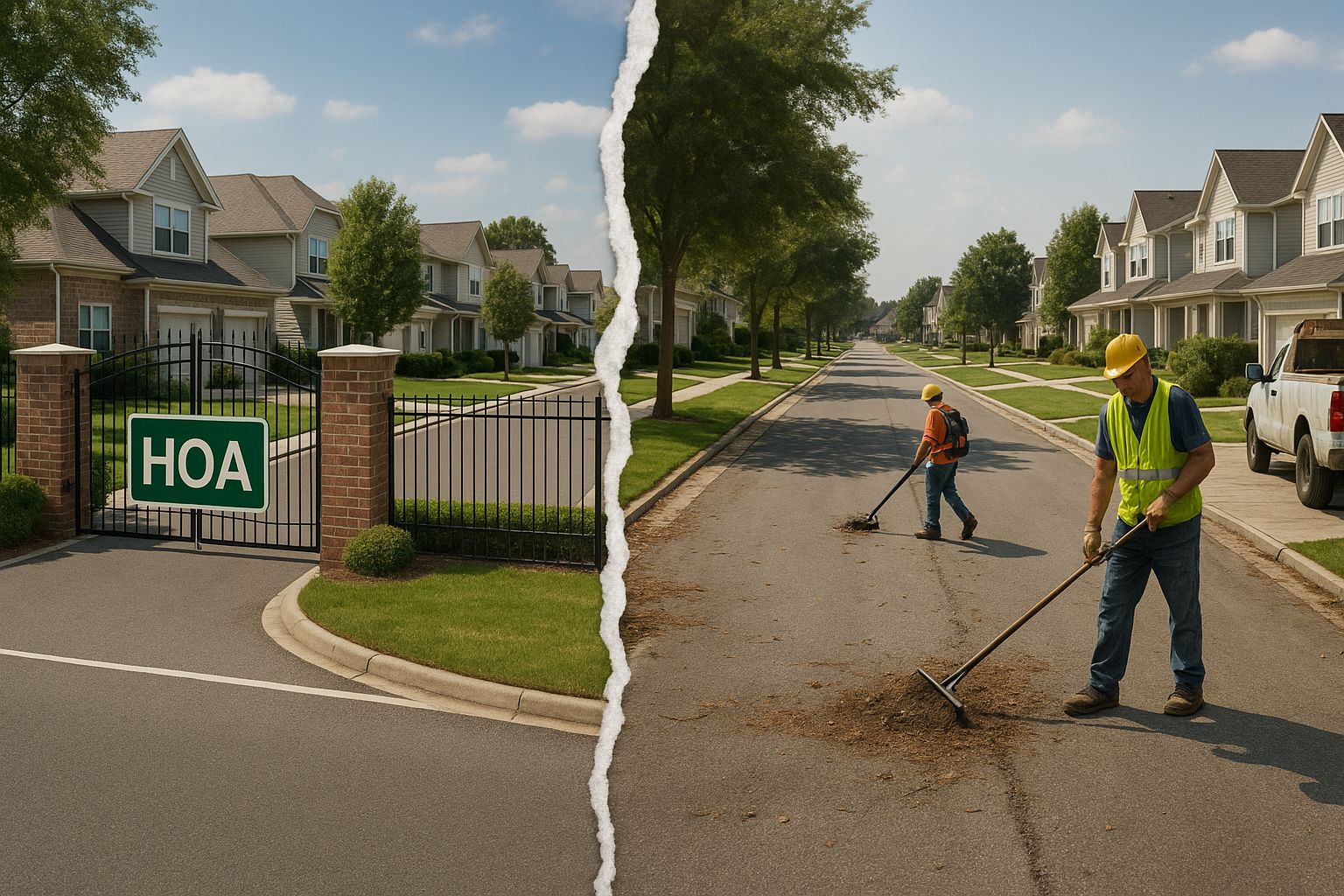Trust This.
By Joseph E. Seagle, Esq.
👋 Happy Friday! Today is National Situational Awareness Day. See below:
❗Situation Awareness: Next week, Florida’s minimum wage increases to $14.00.
1 big thing: MLSs weigh breaking away from Realtor Associations

Florida’s real estate market may soon face a structural shakeup as multiple listing services (MLSs) across the country explore separating from Realtor associations. According to HousingWire, at the recent Council of MLSs (CMLS) conference, industry leaders warned that associations risk fading into irrelevance if they can’t prove their value beyond MLS access.
Vision: Redefining the role of associations
For decades, Florida Realtors and local associations have tied MLS access to membership dues. But some executives argue this model is unsustainable. “MLSs are not membership organizations, like the Girl Scouts. They are subscriber for-profit businesses,” said North Texas Real Estate Information Services CEO Chris Carrillo.
In Florida, associations like Florida Realtors have worked to differentiate themselves with advocacy, a Tech Helpline, and Forms Simplicity—services that extend beyond MLS access. Still, the national trend toward separation is raising questions: will Florida associations double down on advocacy and education, or risk being sidelined?
Traction: Models for separation are emerging
The most dramatic move came in Colorado, where : was sold to private owners in 2024. Its CEO, Dana Bennett, said the divorce actually improved collaboration with local associations. Other markets are experimenting with separate boards and leadership to give MLSs independence without a full break.
Florida may not be far behind. Stellar MLS, already one of the nation’s largest, has expanded reciprocal access with Miami Realtors, giving brokers more reach while hinting at the kind of consolidation and independence other markets are testing.
People, Process & Data: What’s at stake for Florida professionals
For brokers, physicians investing in medical office buildings, or lawyers advising on real estate deals, the structure of MLSs impacts data access, compliance costs, and advocacy strength. A separation could streamline MLS operations but might also splinter lobbying power if associations lose membership leverage.
Advocacy remains the key differentiator: as Houston Association of Realtors EVP Rene Galvan put it, “If real estate is your profession, politics is your business.” Florida Realtors’ ability to keep shaping laws and regulations could determine whether associations remain indispensable to entrepreneurs and professionals.
The takeaway: Florida entrepreneurs and professional practice owners should watch MLS governance closely. The balance of power between associations and MLSs will affect access to listings, lobbying muscle in Tallahassee, and the cost of doing business.
What’s next: Expect more experiments like REcolorado’s sale or Stellar’s partnerships. Florida could become a proving ground for whether associations can thrive on advocacy and education—or whether MLS independence reshapes the state’s real estate ecosystem.
2. Florida HOA abolition proposal faces clapback

A bold idea in Tallahassee is colliding with political and practical reality. Rep. Juan Carlos Porras (R-Miami) is openly considering legislation to abolish homeowners’ associations for single-family homes statewide, calling them a “failed experiment” that saddles Floridians with excessive fees and authoritarian boards.
Yes, but the proposal is already drawing strong resistance from industry groups, local officials, and even homeowners who say dismantling HOAs could unleash chaos. Nearly half of Florida’s population—an estimated 9.5 million people—live in communities governed by these associations. Collectively, they manage billions in reserve funds, maintain roads and amenities, and enforce covenants that, for better or worse, shape property values.
Critics warn that eliminating HOAs would dump enormous costs onto counties that aren’t equipped to handle them. Who would maintain stormwater ponds, collect trash, fix private roads, or staff security gates if associations vanish? Real estate attorneys note that decades of land covenants and bond obligations would still need to be enforced somehow. Title insurers and lenders, meanwhile, see serious risks in unwinding the legal frameworks that undergird thousands of neighborhoods across Florida.
Even among homeowners, opinions are split. Some point to abusive boards that fine residents for trivial violations or even threaten foreclosure over thin mulch and a few weeds. Others argue that “bad apple” associations don’t justify a statewide ban that could punish communities where boards operate transparently and fairly.
Lawmakers may also be wary of going too far. Florida already enacted significant HOA reforms in July 2024, curbing arbitrary fines, requiring board training, and mandating more transparency. That momentum suggests incremental fixes may be more politically palatable than abolition.
Why it matters: For Florida’s entrepreneurs and professionals, the stakes are high. A repeal could attract buyers tired of spiraling HOA fees, but it would also create uncertainty around neighborhood upkeep and property valuations. Developers might face higher municipal costs if they can no longer rely on HOAs to manage infrastructure. And investors—from physicians and lawyers buying practice-adjacent offices to real estate entrepreneurs—would need to navigate an unsettled governance landscape.
The bottom line: Florida’s HOA debate isn’t just about overzealous boards or costly dues. It’s a referendum on who governs billions of dollars in neighborhood assets—and whether dismantling HOAs would solve homeowners’ headaches or create even bigger ones for local governments and the marketplace.
Stop Drowning in Market News. Focus On Making Money.
Every day: 847 financial headlines, 2,300 Reddit stock mentions, 156 Twitter trading threads, 12 IPO updates, 94 crypto developments.
Your problem isn't lack of information; you have too much.
While you're scanning headlines wondering what matters, profitable trades slip by. The signal gets buried in noise.
What if someone did the heavy lifting for you?
Stocks & Income reads everything:
Twitter traders
Reddit buzz
IPO announcements
Crypto insider takes
Crowdfunding opportunities
Market news
Then we send you only what can actually move your portfolio.
No fluff. No useless news. Just actionable stock insights in 5 minutes.
We track every source so you don't have to. You get the 3-5 opportunities worth your time, delivered daily.
Stop wasting time on useless “investing news” and start thinking critically about real opportunities in the stock market.
Stocks & Income is for informational purposes only and is not intended to be used as investment advice. Do your own research.
3. Don’t poke holes in your LLC armor

Many Florida entrepreneurs set up LLCs to shield their personal assets from business risks. That protection, however, isn’t automatic. If you don’t treat your company like a separate business, a court may not either—and your personal savings, home, or other assets could be on the line.
Why it matters: Florida makes it easy to form an LLC. Unlike corporations, there’s no state requirement to hold annual meetings or draft elaborate bylaws. Hell, you’re not even required to have an operating agreement.
But while the law is flexible, judges across Florida continue to emphasize that the liability shield only holds if the LLC is operated like a true business. In lawsuits, sloppy practices like paying personal bills from the LLC’s account are red flags that can convince a court to “pierce the corporate veil” and allow creditors to pursue your personal assets.
The habits that count: The most common mistake is commingling funds—using the LLC’s bank account as a personal wallet. Just as problematic is signing contracts in your own name instead of on behalf of the company. We once had a case where the lender personally named the LLC’s manager as a defendant in a lawsuit to collect on the note when the LLC defaulted, because the manager had signed and simply forgotten to put “manager” after his name underneath his signature.
Skipping an operating agreement, even for a single-member LLC, is another misstep that can leave you vulnerable. These aren’t technicalities. They’re the everyday details that prove your business has an identity separate from yours.
The bigger picture: Think of your LLC like a safety deposit box. Its purpose is to keep your business assets in one secure place away from your personal life — and vice versa. But if you leave the key in the lock or treat it casually, you can’t expect it to protect you when it matters most. Respecting the formality—clean records, separate accounts, documented decisions—isn’t burdensome compared to the cost of losing your personal protection in a lawsuit.
Bottom line: A Florida LLC is one of the most effective asset protection strategies available, but the shield is only as strong as the way you use it. If you want your LLC to protect you, you have to protect the LLC first.
4. Let it go to grow: Why comfort can hold you back

Small business owners often cling to what’s familiar—whether it’s a long-time client, a comfortable routine, or a role they’ve outgrown. Like hanging from monkey bars, it feels safe. But real growth comes only when you let go, leap forward, and land on the trampoline of new opportunity.
The comfort trap
Comfort creates a false sense of security. A steady system, reliable revenue, and predictable work can feel good—until they start holding you back. Staying too long with an outdated business model, an underperforming hire, refusing to bring on partners, or your role as “chief everything officer” keeps you stuck mid-air.
The truth: what got you here won’t get you there.
EOS principle: Rocks build momentum
The Entrepreneurial Operating System (EOS) helps leaders focus on growth by setting quarterly Rocks— three to seven big, measurable priorities. Rocks force you to let go of distractions and commit to the future instead of clinging to the past.
Clarify your vision: Define where you’re going, not just where you are.
Commit to traction: Align your team on Rocks, shedding projects, businesses, or clients that don’t support the bigger picture.
Trust accountability: Delegate and empower leaders. Releasing control creates capacity for you to scale.
The leap requires courage
Letting go feels risky—like losing your grip mid-swing. But clinging to the bar only ensures stagnation. The trampoline of opportunity is waiting, but you can’t land on it until you release what no longer serves you.
The bottom line: Comfort is the enemy of scale. True business growth demands clarity, courage, and trust in your systems. Let go of what’s safe, take the leap, and prepare for the bounce that propels you—and your team—into the next level of success.
We hope you found this helpful — any feedback is appreciated and can be shared by hitting reply or using the feedback feature below.
Was this email forwarded to you? Subscribe here.
Have an idea or issue to share? Email us.
Connect with us using your preferred social media and website links for MyLandTrustee and Aspire Legal Solutions.
Our mailing address: PO Box 547945, Orlando, FL 32854-7945
Our physical address: 1901 West Colonial Drive, First Floor, Orlando, FL 32804
Be on the lookout for our next issue! 👋

